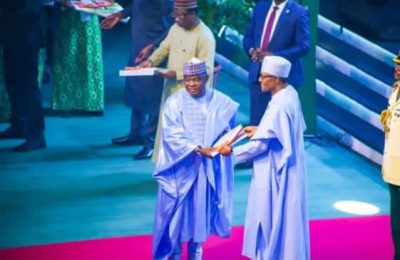By ABUBAKAR YUSUF
The general acceptance of the House of Representatives Chairman, House committee on budget appropriation, Rt Honorable Muktar Aliyu Betara representing Kwaya -Kusar Biu and Sani-Bayo federal Constituency of Borno state is unique both by his constituents and by extension his colleagues and ordinary Nigerians.
The development promoted not only his ranking advantage after securing many victories to return to the federal House of Representatives , but his constituents genuinely purchased the last intent form to return to the green chamber for him ‘free of charge’ and without main contenders from any political parties except to fulfill all righteousness.
Having chaired and emerged membership of several committees of the whole house including the adhoc ones, Rt Honorable Betara was in the 9th Assembly saddled with the assignment of budget allocations , supervision and execution in the same house, an assignment he did perfectly well and diligently.
Aside chairing and carrying out official engagements in the House of Representatives, the natural leadership qualities, participatory, command and control, as well his exemplary disposition both at the house and joint committees of the two houses had placed Betara above board in the demands of the new leadership at the green chamber in May 2019 for the 10th Assembly.
His ambition will also be highly favoured as a member from the North- East region of the country, a zone that has not produced any leadership of the House of Representatives since the return to democracy in 1999.
Rt Honorable Betara who led the House of Representatives appropriations into a year round budget circles from January – December between 2019 and 2023 an uphill task that could not be achieved since the return to democratic rules in the last two and half decades.
He ensured strict compliance, supervision and monitoring of budget execution, provisions in the budget to the betterment of 360 constituents across the country.
The on the spot assessment of projects that had direct bearings on the lives ordinary Nigerians,which did not stop at budget proposals in the yearly budgets along with some government agencies had assisted greatly in ressolving and providing social services across the country, as well as strict execution of capital projects by government Departments, Agencies and Parastatals across the country.
His approaches to plenary assignments, engagements, oversight functions, committees assignments had distinct and positioned him as the next person the leadership onus will fall on him in the House of Representatives of Nigeria.
The ability to ressolve Issues in the lower chamber, unity of purpose, arriving at major decisions with the consents of the whole membership of the house had assisted in no small measure to the day to day activities of the green chamber.
Highly exposed, accepted both at home and in the diaspora, Rt Honorable Muktar Aliyu Betara will exposed and explored both the bilateral, multilateral discussions between Nigeria and countries to another level that will project the image of the country in good stead.
A national award winner of Officer of the Order of the Niger OON, this was singularly owing to the recognition of achievements recorded both in the House of Representatives and public service in recent times presented by Nigeria’s President, Muhammadu Buhari in 2022.
No doubt, with Rt Honorable Aliyu Muktar Betara as the Speaker, Federal House of Representatives in the 10th Assembly, will be a good thing that will happen to the lower chamber of the Nigeria’s Assembly in recent times.
Written By ABUBAKAR YUSUF, A Public Affairs Analyst from Abuja, and can be reached on yus.abubakar3@gmail.com.










